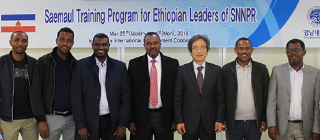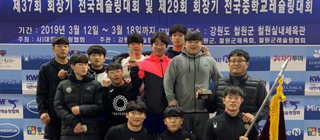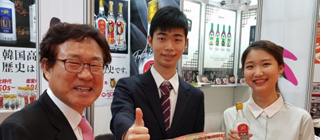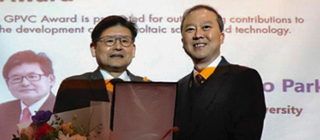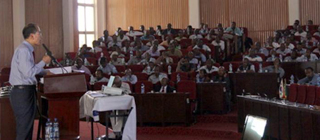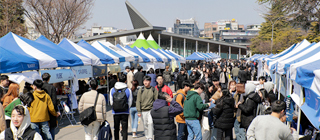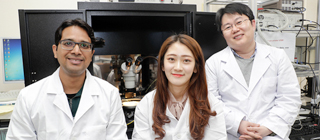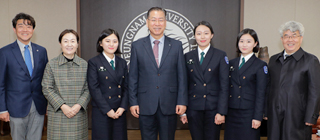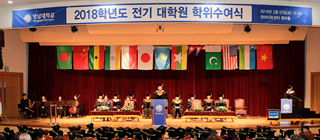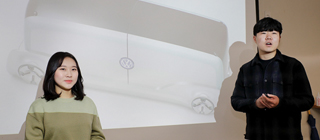-
The YU International Development Cooperation Center hosts Saemaul development training for ‘SNNPR, Ethiopia’ Governor’s delegation New governor strongly requested ‘Saemaul development’ training... 2nd training team to receive education in May Ethiopia Saemaul Undong policy training selected as ‘best’ global education training case by KOICA [April 1, 2019] <Training team from the SNNPR (Southern Nations, Nationalities and People’s Region), Ethiopia who participated in the YU Saemaul development policy training> YU (President Sur Gil-soo) is helping SNNPR, Ethiopia reach regional development through policy training education by applying Saemaul development. The governor and other leaders of SNNPR, Ethiopia participated in the Saemaul development policy training held by the YU International Development Cooperation Center (Director Park Seung-woo) from March 25 to April 1. This training was held at the request of the newly appointed governor of SNNPR, Million Mathewos. SNNPR is one of the nine provinces of Ethiopia and it is a large self-governing province with a population of approximately 19 million. This is not the first time that there was exchange and cooperation between YU and SNNPR. SNNPR also completed a Saemaul education research program back in January and February of 2015 when the former governor was in office. At the time, the research team was very assertive and participated in the training by procuring financial resources on their own despite their weak financial conditions. In the education and training held on two separate occasions on an eight-day schedule, 23 people (11 in 1st and 12 in 2nd) including the governor and vice-governor received training. Also, in February of 2016, professors of YU led by Professor Choi Wae-chul of the YU Department of Saemaul and International Development went to SNNPR to offer the Saemaul Undong policy training program. This program has reaped clear success being selected as a best case in the global education and training evaluations by KOICA (Korea International Cooperation Agency) recently. <The SNNPR, Ethiopia training team visited the Cheongdo Saemaul Undong Origin Memorial.> The training team visiting YU included a total of eighth senior public officials including Governor Million and four provincial government directors. They had the opportunity to learn about the philosophy and driving principle of Saemaul development, and also studied Saemaul Undong experience cases such as the leadership of leaders and implementation plans for SNNPR, Ethiopia. They also went on field trips to look around the place where the Saemaul Undong originated, POSCO and scientific farms. In May, the second training team of 16 people including the vice-governor are scheduled to receive training at YU. YU Department of International Development Cooperation Director Park Seung-woo who oversaw this training program said, “We hope that Korea’s various development cases and especially the regional development cases through the Saemaul Undong will contribute to the development of Ethiopia’s SNNPR regional development.” YU has continuously worked on turning the Saemaul Undong into an academic science for the past 30 or so years, while offering it to be used for the development of developing countries. Since its founding in 2011, the YU Park Chung Hee School of Policy and Saemaul gave master’s degrees to a total of 543 students from 62 countries and most of them are currently serving as public employees in the social development sector of their respective nations. Also, the YU International Development Cooperation Center that provides short-term education and training programs graduated a total of 2,955 students from 45 countries up until now. It is expected that those who completed YU’s global Saemaul education and training program will lead the development policies and development sites of developing countries around the world. .
-
‘4 gold, 4 silver, 3 bronze’, total of 11 medals won... Won overall top for second consecutive year Han Hyun-soo wins MVP Award and Coach Kim Ik-hee wins Best Coach Award Dominating collegiate wrestling by winning overall first place for third consecutive year in the fall national wrestling championships [March 21, 2019] <YU wrestling that won overall first place in the group division at the 37th Chairperson’s National Wrestling Championships> The YU wrestling team (Coach Kim Ik-hee) won overall first place in the group division of the 37th Chairperson’s National Wrestling Championships. This is the second straight year to come out on top. At the collegiate freestyle division held at the Cheorwon Gymnasium in Gangwon-do from March 12 to 14, the YU wrestling team swept a total of 11 medals – 4 gold, 4 silver, 3 bronze, and took first place in the group division. Gong Ji-min (19, Sports Science sophomore, 61kg), Moon Jin-woo (19, Sports Science sophomore, 74kg), Kim Yong-hak (21, Special Physical Education junior, 79kg), and Han Hyun-soo (20, Special Physical Education junior, 125kg) won gold medals, Kim Ha-nel (22, Sports Science senior, 65kg), Nam Dae-hyun (18, Sports Science freshman, 79kg), Park Yong-min (18, Sports Science freshman, 86kg), and Shin Gi-sung (18, Special Physical Education freshman, 97kg) won silver medals, while Ahn Jae-yong (21, Sports Science senior, 57kg), Jang Hyun-woo (19, Sports Science freshman, 65kg) and Park Chang-hwan (20, Special Physical Education junior, 92kg) won bronze medals. In particular, freshmen who just began their college life also won medals, thus continuing the tradition as the top college wrestling team. Han Hyun-soo, who won the gold medal in the 125kg division won the MVP award and Coach Kim Ik-hee of the YU wrestling team won the best coach award for the second consecutive year. The YU wrestling team also was ranked first by sweeping a total of eightfold way medals including 5 gold, 2 silver and 1 bronze at the 29th Fall National Wrestling Championships in December of last year. They won first place for the third consecutive time in this tournament as well, showing their dominance in collegiate wrestling. Coach Kim Ik-hee, who is leading the glory days of the YU wrestling team, said, “As we have been performing well every year, outstanding students are naturally coming to the YU wrestling team. It is very encouraging to see not only sophomores, juniors and seniors do well, but also freshmen wrestlers doing superbly.” He added, “We will not stay satisfied with our achievements thus far, but continue to train hard to continue this legacy and golden age of YU wrestling.”
-
GTEP project team participate in international food and beverage exhibit to promote local companies and products Working on the front lines to help small and medium companies find export channels through consultation and interpretation for buyers on the forefront of overseas exhibits Received practical trade education and gaining experience at overseas exhibitions to improve their competencies [March 20, 2019] <Kim Hee-jin (right) of the YU GTEP project team that participated in an international food and beverage expo in Japan with a company located in Daegu> YU students are helping local small and medium companies to export their products. Students of the YU Glocal Trade Experts Incubating Program (GTEP) teamed up with local small and medium companies to work hard to open the doors to exports. GTEP project team students went to the international food and beverage expo (FOODEX JAPAN 2019) held in Chiba, Japan from March 5 to 8 to help a kaoliang liquor maker called Suseong Goryangju (CEO Lee Seung-ro) located in Daegu find export channels. FOODEX JAPAN is one of the world’s top three food expos joined by over 3,300 food and spirits companies from over 80 countries around the world. They met with buyers together with company representatives at the expo to provide consultations and promote products. Over 20 consultation seconds were held at the expo and it was judged that buyers were highly satisfied and there are high potentials for them to result in actual contracts. GTEP team 13 agent Kim Hee-jin (20, School of Economics and Finance, junior) who participated in this expo said, “We promoted companies and products using both English and Japanese. After a few consultation sessions, I gained confidence through my experiences that could only be learned on site.” She added, “It was a great experience to improve my practical capacities by meeting with and consulting buyers by participating in this overseas expo with a corporate representative.” Prior to being sent abroad, students at the GTEP project team gain excellent theoretical abilities through education on practical basic trade education, selection of items, market analysis, overseas marketing, and consultation simulation education, etc. They also do the jobs of corporate professionals at the expo. They provide support on almost all operations at the expo ranging from installation of booths, product display, corporate PR and product description, buyer consulting, drafting work consultation logs, English translations and interpretation, etc. Students of the YU GTEP project team 13 has already participated with 24 domestic companies in the Dubai Gulf Food Expo, Hong Kong Jewelry Expo, China East China Fair, and the Vietnam Interbeauty Cosmetic Expo as spearheads for small and medium companies to pioneer into foreign markets.
-
-
KOICA evaluated 120 global education and training for three years and six months since 2015 ‘YU Ethiopia SNNPR Saemaul Undong local training’ selected as top case [March 5, 2019] <Ethiopia SNNPR local Saemaul development training for public employees (Feb 2016)> YU was selected as the best case for global education and training by KOICA (Korea International Cooperation Agency) for its ‘Ethiopia SNNPR Saemaul Undong policy research’ program conducted in SNNPR (Southern Nations, Nationalities and People’s Region) in Ethiopia in February 2016. KOICA conducted the ‘2018 global education and training excellent performance case contest’ for 120 global education and training programs conducted from March 2015 to August 2018 for three years and six months, and it ranked YU’s Ethiopia SNNPR Saemaul Undong local training program as the best case. On Feb 27, 2019, the ‘2019 KOICA New Global Education and Training Institute Seminar’ was held at KOICA. At this seminar, YU Professor Choi Wae-chul (Department of Saemaul and International Development) introduced the Saemaul local training case in Ethiopia in 2016 conducted by YU and received the ‘2018 KOICA Best Global Training Project Award’ plaque by KOICA President Lee Mi-gyung. At the time, Professor Choi served as the director of the YU international development cooperation center and was in charge of the Saemaul local training program in Ethiopia. <Presentation of the best 2018 KOICA global training case> Meanwhile, KOCIA’s ‘Best Global Training Project Award’ was pursued as part of a project for finding and sharing outstanding cases to improve the level of global education and training projects among ODA projects targeting developing countries by KOICA. KOICA collected cases from 10,004 people who participated in the projects including overseas offices, public agencies, training institutes, trainees, etc. in all of KOICA’s global training and education projects from March 2015 to August 2018 (3 years 6 months) and analyzed and assessed the global training project program’s suitability and effectiveness of its achievements by consigning a professional institute. There was a total of 147 applications in this evaluation and among them, 120 were evaluated. By region, 41 were in Asia-Pacific, 43 in Africa, 15 in Latin America, 6 in the Middle East and CIS regions, and 15 in other regions. The review criteria of outstanding cases that KOICA announced were performance and content. The performance sector is composed of the suitability of performance (conformity with the KOICA training project goals, conformity with the development demand of beneficiary countries, conformity with international development cooperation standards) and the effectiveness of the achievements (efficiency of the achievement process, impact of achievements, sustainability of achievements). The contents sector is comprised of concreteness (concreteness and reality of the achievement process description, clarity of the achievements and expected effects description) and logic of contents (feasibility and consistency of contents, clarity of proof). In the YU Ethiopia Southern Nations, Nationalities and People’s Region SNNPR Saemaul Undong education and training, YU prepared the educational program and dispatched faculty to Ethiopia to conduct training in Ethiopia to about 700 local public employees from February 20 to March 1 back in 2016. The public employees who attended the training gave high scores in all objective evaluation indicators such as training achievement, trainee satisfaction and application plans in the follow-up evaluations. The Ethiopia SNNPR is one of the nine provinces of Ethiopia and its population is approximately 19 million. In particular, the Ethiopia SNNPR recently elected a new governor and requested two in-depth Saemaul development training and education to YU to pursue local social development through Saemaul development. In result, two training sessions are scheduled to be offered from March of 2019. This is another reason why the YU Ethiopia SNNPR Saemaul local training and education was given positive reviews. It was judged that what the YU Saemaul education program left behind was that despite the poor financial conditions of developing countries, the will of the leader who intends to pursue social development by procuring financial resources for education through independent efforts is an important element for the success of local development, and that despite the fact that the highest leader in the provincial government changed, Saemaul development was judged to be an effective policy for overcoming poverty and to achieve local social development. Professor Choi Wae-chul (Department of Saemaul and International Development), who is also an advisor for the Ethiopia SNNPR said, “Korea received 12.77 billion dollars in aid from the international community back when it was poor. It is now time to repay the international community that helped Korea overcome its poverty in the past. In particular, Korea transformed from a country that received international aid to a country with a per-capita income of 30,000 USD, and therefore, Korea has the responsibility to share its development experience with the 146 developing countries (beneficiary countries) that still face difficulties.” Professor Choi added, “Such attitude is the way for the people who received financial resources from the international community to be used as the driving force for national development to repay the international community. Furthermore, this will not only open up paths for our future generations in the international community, but will serve as a shortcut to expand the market for industrial products of Korea.” The Saemaul Undong has been used as a policy plan by the UN’s World Food Programme (WFP) since 2011 to overcome poverty in developing countries around the world and in 2013, the Saemaul Undong was registered as a UNESCO Memory of the World. YU has worked continuously on creating the Saemaul Undong an academic science and to share it for the development of developing countries. Meanwhile, YU YU has offered Saemaul international developing sharing education programs for 85 countries as of 2019 and this year, it is scheduled to offer training for high-ranking public officials in SNNPR of Ethiopia and training for Saemaul education teachers of Myanmar and Rwanda. Furthermore, YU is receiving attention as the main university for education and research of global Saemaul studies (Saemaul development studies by providing support and counsel for the installation of the ‘Saemaul Economic Development Department’ at universities in Zambia and Cambodia.
-
The YU General Clubs Association held the ‘Club Expo’ on the 13th and 14th 80 clubs in eight divisions including academics, volunteering, sports and arts recruit new members on the streets Over 2,000 students joined clubs and are enjoying campus life [March 14, 2019] <YU 2019 Club Expo> “2019 freshmen! Join clubs and enjoy campus life~” Clubs are recruiting new members from freshmen with the start of the new semester in 2019. The YU’s 32nd Hanbit General Clubs Association (Chairman Song Min-wook) held the ‘2019 club expo’ on Cheomaro on the campus on the 13th and 14th. The central club expo is an annual event held in March and it is an evert where club members explain the features and activities of their club to freshmen to recruit them. <Dance club 'Max&Zenith' perform at the ‘2019 Club Expo’> Eighty clubs from eight divisions such as language, culture, academics, applied academics, religion, volunteer, sports and arts under the YU central clubs engaged in activities to recruit freshmen and other students to their clubs. On the 14th, the YU dance club ‘Max&Zenith’ and ‘Cheonma Cheer Team’ put on a surprise show receiving great responses from new-coming students. YU General Club Association Song Min-wook (23, Electronic Engineer, senior) said, “There are currently about 2,000 students that are active in different clubs. Clubs can make college life richer. In addition to the expo, clubs are always opened to new members.” He added, “Freshmen in 2019 can visit various clubs and join their favorite club to enjoy a fun campus life.”
-
Senior Kim So-hyun’s achievement with ‘research on electric energy storage materials’ Developed highly efficient new material that can store high electric energy High value for industrial use such as electric vehicles, military rail guns, medical defibrillators, etc. [March 13, 2019] <School of Materials Science and Engineering senior Kim So-hyun (center) who published a study as the primary author in an international journal as an undergraduate student)> An undergraduate student at YU published a study as the primary author in an international journal. A paper on her studies on electric energy storage materials by School of Materials Science and Engineering senior Kim So-hyun (21) was recently released on the online version of an international journal on electric materials <Electronic Materials Letters, impact factor (IF 2.884)>. In this research, Ms. Kim developed highly efficient new materials that can save high electric energy. This device that releases high electric energy instantaneously such as for electric vehicles and defibrillators uses a material called a high energy capacitor bank. Kim developed the material used for high energy capacitor banks through this study. Kim said, “High energy capacitor banks need materials that can instantaneously release much higher electric energy compared to batteries generally used when storing electric energy. Ceramic materials that have high genetic capacities (ability to store electricity) are affected little by the temperature or user environment compared to polymer materials that were used in the past. In addition, even if the same electric energy is stored, it can significantly lower its volume and weight.” She explained further saying, “I successfully developed new materials with very high efficiency that stores high electric energy by developing a PLZT [lead (Pb), lanthanum (La), zirconium (Zr), titanium (Ti), oxygen (O) compound] ceramic material among reinforced genetic ceramic materials.”. Professor Ryu Jung-ho, who advised Ms. Kim at the YU School of Materials Science and Engineering functional materials and element research lab, said, “Just as a lot of electric energy is needed when a stopped electric vehicle starts, it can be applied in energy storage devices of systems that supply large amount of electric energy instantaneously.” He added, “It has high industrial value as it can be used as energy sources for electric vehicles, military rail guns, and medical defibrillators.” Kim said, “I am planning to go on to graduate school through the integrated bachelor’s and master’s course. I believe that I have gained the fundamentals as an undergraduate through this research. In graduate school, I will conduct research on developing new materials that are academically and industrially useful.” She added, “I especially want to do research in ‘energy harvesting’ technologies that convert energy that not used and thrown away into electric energy.”
-
4 ROTC and 1 cadet in the third military academy and 1 cadet in the non-commissioned officer academy last year for a total of 6 cadets Achievements of operating the ‘female military incubation program’ supervised the Employment Office and ROTC Operation of systematic education program such as theories, duties, character, and physical training [March 13, 2019] <YU students selected for the 59th ROTC cadets> (From left to right – Employment Office director Lee Seung-woo, Instructor Baek Sung-hee, student Choi Yoon-young, YU President Sur Gil-soo, Kim Jung-in, Oh Ji-eun, Vice-president of academic affairs Lee Tae-jin) YU (President Sur Gil-soo) is receiving attention as a university for training female military cadets. YU helped four students become cadets for the 59th ROTC, while one cadet for the third military academy and one cadet for the non-commissioned officer academy. Thus, six female military cadets came from YU in the past year, thus making YU recognized as a cradle for female military officers. Kim Jung-in (20, Dep. of Chinese Language and Literature, junior), Oh Ji-eun (20, Dep. of History, junior), Choi Yoon-young (21, Dep. of English and English Literature, junior), and Ahn Hye-jin (21, Dep. of Special Physical Education, junior) were selected as ROTC cadets, while Lim Seul-gi (22, Dep. of Political Science & Diplomacy, junior) was selected as a cadet for the third military academy and Seo Yoo-bin (20, Dep. of Civil Engineering, junior) was selected as a non-commissioned officer cadet. The ROTC cadets will complete their school and military training simultaneously and join the military as officers after graduating. YU has shown a continuous increase of female officers since 2006. The reason why YU has been able to continuously shape female military officers is because of the female military officer fostering program offered by the university. YU has been offering systematic education programs for female students who wish to become military officers through its Employment Office and ROTC Office since 2005. YU operates educational programs that include theoretical and practical education, as well as physically fitness and character education to improve the students’ capacities to become military officers. It helps students prepare for written tests through intellectual abilities, work attitude, judgement inspections, and history education, as well as physical training such as running, push ups and sit ups. It also provides education to enhance their national view, security views and military mindsets as well as on leadership to help them prepare for interviews. In particular, the female military officer incubation program operated by YU has been making great achievements with Reserve Major Baek Sung-hee, who also graduated from YU, taking charge of instructions. Major Baek Sung-hee joined the service in 1990 and completed 20 years. After retiring, she returned to YU to share her experiences and know-how to her juniors at YU. YU President Sur Gil-soo said, “There has been a recent growth of women in the military and the competition for female cadets has also increased. Students will be able to empower themselves by finding their aptitudes early on and preparing for their career paths.” He added, “I hope that students will gain competitiveness for employment through the various customized processes offered by the university.”
-
Graduation ceremony for general graduate school held at the Cheonma Art Center at 10:30 a.m. on the 22nd 85 PhDs, 389 master’s 3,945 bachelors [Feb 22, 2019] YU (President Sur Gil-soo) held the 2018 graduate school graduation ceremony at the Cheonma Art Center Chamber Hall at 10:30 a.m. on the 22nd. Separate graduation ceremonies were held for different departments, law school, business administration, public administration, Park Chung Hee School of Policy and Saemaul, and other special graduate schools. On this day, 3,945 people received their bachelor’s degree, 389 master’s degrees, and 85 PhD’s. Among them 98 international students (42 bachelor’s, 28 master’s, 28 PhD’s) received their degrees. YU president Sur Gil-soo, YU Graduate School Dean Seo Jung-sook, Yeungnam School Foundation President Han Jae-sook, YU General Alumni Association Chairman Jung Tae-il, etc. attended the graduation ceremony to give diplomas and congratulate the graduating students. In his congratulatory address, YU President Sur Gil-soo said, “I am confident that the knowledge and capacities gained at YU will be a big driving force for the development of our nation.” He added, “Please remember that graduation is not the end, but only the start to go out to a new world. Believe in your potential and live a life of challenges.”
-
Praised for auto-driving bus food, etc. “Confident to compete with students in Seoul” <YU Department of Industrial Design’s ‘Serbus’ team took second place in the Audi Volkswagen Korea College Student Idea Contest> (clockwise from left to right: Dep. of Industrial Design Sohn Hee-bong, Shin Guk-tae, Kim Mi-hyeon, Professor Seo Hyeok-jun In a college student idea contest for young and innovative digital service (AVK – Future Mobility Challenge)’ that proposes the future of mobility and makes movement convenient, the YU ‘Serbus’ team won second place (KAIST Graduate School of Green Transportation Dean Cho Cheon-shik Award, prize 3 million won). I met with these students on the 8th at the YU College of Design and Art Room 221. There were numerous illustrations taped to the glass wall of this lecture room normally used by the Serbus (service + bus) team that configured the synthesis of buses and commercial spaces. Their efforts to come up with good ideas were could be seen here. Sohn Hee-bong (24, Dep. of Industrial Design, junior) who successfully led the team in the contest said, “I learned about this contest during a study group meeting in October of last year. About 120 teams competed and 10 teams passed the preliminaries, and a final 5 team received mentoring to make a final presentation.” He continued to explain, “We proposed to make it possible to enjoy services such as hamburgers, coffee, fitness, and cosmetic services in the self-driving bus. It is possible to separate or combine spaces to change the services offered for different time frames.” Shin Guk-tae (23, Dep. of Industrial Design, junior) said, “The process of finding a contact point considering design and technical aspects was difficult. I was focused more on design, which is my major, and so we came up with solutions by receiving mentoring in technical parts.” He added with a smile, “I no longer had to feel intimidated because I attend a college outside of Seoul and became confident that I could compete with students in Seoul.” Professor Seo Hyeok-jun (34, Department of Industrial Design) explained the birth of the Serbus team saying, “It takes more than just one cool image. Scores are given for the thought put into the idea and how it is developed through the final selection process, and that is why many people say the AVK contest is harder than others.” He added, “Even though the students live in a smaller region, they should participate in larger contests such as international contests to gain insight on changes in the future vehicle industry and the importance of transportation services, while also learning which brands and companies are making what kind of preparations, and also broaden their horizons.” This contest began in December of last year by Audi-Volkswagen targeting Korean college students. The five teams selected for the finals are given opportunities to receive mentor programs with automobile experts and relevant scholars. The first-place team is given a cash prize of 10 million won, an opportunity to visit the head office in Germany, and bonus points when applying to internship programs of Audi-Volkswagen Korea.
